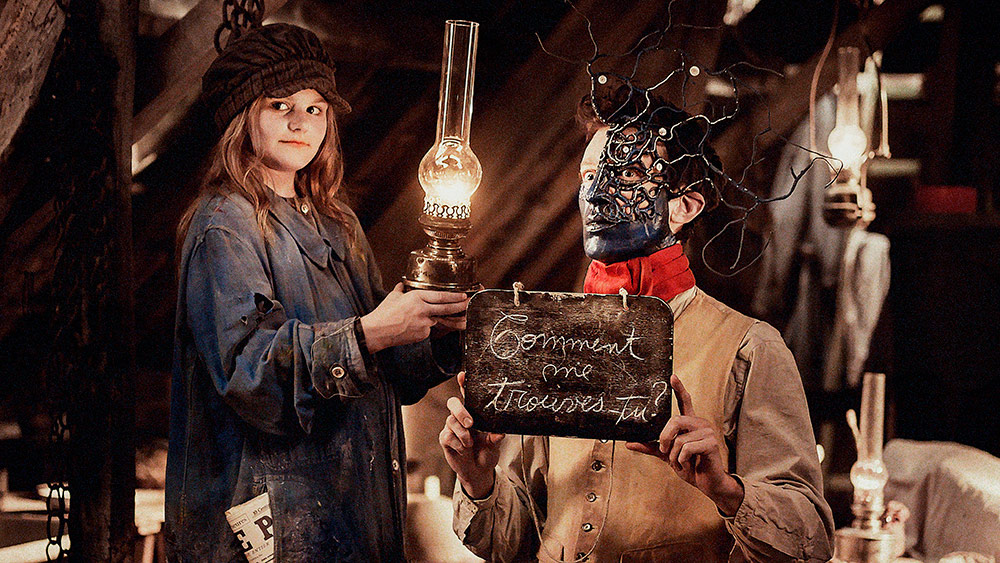Writer/director/star Albert Dupontel delivers a heartfelt tribute to France’s fallen soldiers of World War 1 under the guise of a dark-comedic crime drama.
French soldiers Albert Maillard (Dupontel) and Edouard Péricourt (Nahuel Pérez Biscayart) cook up a scheme to sell designs of monuments to honour fallen comrades post their return from World War 1, and then do the runner once they’ve received payment. Péricourt, a brilliant artist and son of a high ranking official was severely disfigured during the war and is using this scheme as a way to cope with an agony-filled life, while hiding out from his estranged father and his former Army ranking officer, the nefarious Henri d’Aulnay-Pradelle (Laurent Lafitte). Maillard, on the other hand, feels indebted to Péricourt for saving his life on the battlefield and reluctantly agrees to partake in the criminal plot.
The film uses its quirky crime plot to mask the tone of the film’s foundational themes that highlight the effects of war, such as post-traumatic stress disorder and coping with disability, and the kinship that forms between soldiers that have shared the battlefield. Corruption and greed play a big role in the scramble to adjust to daily post-war life, aspects that parties on both the good side and bad are willing to exploit in this film. Questions of morality feature throughout the film, forcing viewers to rely on their conscience to decide what’s right and what’s wrong, with there often being no right answer. All of this comes in a well executed, entertaining and thoughtful package.

Dupontel, Biscayart and Lafitte are the film’s MVP’s, playing characters with distinctly different personalities, that all share the common thread of serving in the war together. Dupontel as Maillard, the emotionally and principally-driven everyman, Biscayart as Péricourt, the liberal creative type, and Lafitte as Pradelle, the win-at-all-costs, morally ambiguous shark. The three of them create a balanced dynamic for the audience, giving viewers the opportunity to side with their preferred character’s traits. Regardless of which character one can most relate to, there is no denying the three leads offer outstanding, emotive performances, with special credit given to Biscayart, who has his face covered for the majority of the film but manages to convey each emotion perfectly through his eyes and body.
See You Up There features some fantastic cinematography, set and costume design, and art direction that pulls viewers into the world of early 1900’s France. It makes for what feels like an authentic experience, as the look and general atmosphere of the film imbue a certain charm that’s pleasant on the eye. It works well to juxtapose the effect of some of the film’s heavier themes. The production value is of a high quality and one that rivals its bigger-budgeted American movie counterparts.
Where the film lacks is that it doesn’t lean too far in any direction. All of the dramatic elements feel somewhat toned down, enough to appeal to as wide an audience as possible. It could be argued that this is beneficial to the overall direction of the film, and it definitely works, however, there isn’t one scene or one particular aspect of the story that’s truly remarkable or memorable. Nevertheless, the film features a great story with excellent direction and performances, making Albert Dupontel’s See You Up There a must-see of modern mainstream French cinema.
Fun Fact:
The role of Albert Maillard was originally to be played by Bouli Lanners who, due to overwork, withdrew from the project.




COMMENTS